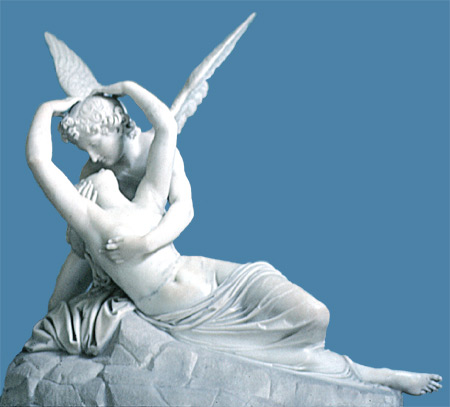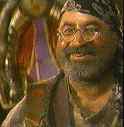Ooooh, I love my scaaaaaaawf!
It is so waaaaaaaaaaawm
And fuzzyyyyyyyyyyyy!
If I could find a maaaaaaaaan,
Who is wike my scaaaaaaaaawf -
I would mawwy him
And he would keep my neck waaaaaaawm!
~ Courtesy of Mandy in Austria seranading us all in impromptu baby cat singspiel.
I have found Thisbe's costume. Pity the poor wretch who is cast.
Actually, I should say that
Julie has discovered his costume. It looks like so: a polystyrine-pseudo-silk lilac bridesmaid's dress whose recent incarnation is a sleeveless A-line jumper, under which is Julie's one-sleeved mock-up bodice of her current project done in an ever-so-lightly faded pink patterned ex-bedsheet, the sleeves of said bodice are 1) non-existant and 2) huge and flowy. Added to this are the following accessories: two gloves, mismatched - one made of lace that would grace Cyndi Lauper's 80's gear and the other gleaned off of Anastasia's elegant hand when she went to the Opera Paris. Also, a psychedelic rainbow-striped two inch wide elastic belt that snaps together with a wilting red rose. Two hats: one a matching lilac stuffed tube garlanded with flowers and lace that flow down the back, and the other a rather beaten electric pink pointed little girl's "princess" hat also with lace down the back and a tendency to flop over a la the Smurfs. But since this IS a part played by a man who has "a beard coming," he will manfully ALSO wear his trademark red plaid scarf tied Pippin-like around his neck. And to make fun of myself, we will finish off the ensemble with a red plastic mask that tends to glitter a bit. I do not think I will make him wear heels or even slippers. I may however ask how the actor feels about tie-died fuzzy Monsters Inc. slippers.
Bwahahahhahahha.
But hey, it's all in a good cause. I end up actually making this character heroic - since Quince's neice (an addition to the script) will "save" Flute/Thisbe just as he's about to storm off after "these cowslip cheeks." She'll come on and finish Thisbe's speech
to Flute (as though HE were Pyramus), and whilst speaking sort of transform him back into a man - indeed, transform Flute into Romeo and herself into Juliet. Then she will die in his arms. And during Robin Goodfellow's subsequent speech when he says "Give me your hands, if we be friends"...? I plan to have Flute and Quince's neice picking up the discarded props during his speech, and then Puck puts their hands together at that point and they look up and freeze, aaaaand, "Robin shall restore amends." Lights out. Enthusiastic cheers!
Saw
Once Upon a Time in Mexico. Blaugh blaugh blaugh blaugh blaugh. To see my quick review,
click here. On the upside, it was a nice cold night so I had an opportunity to wear my new turtleneck, it was loverly to treat myself to a movie since it's been a while (for me), and even loverlier was that Jules went with as did Ch. and afterwards all out to MickyD's for more chatting, esp. re: Catholicism (duh). Which brings me actually to the blog I
meant to do last night and two nights ago and found that I was either a) disgruntled due to an unfortunate e-mail received or b) plain old wiped to do justice to the issue. I shall attempt to do at least a modicum (sp?) of justice to this isssue now.
Why can't women be ordained priests?
Before I go
any further on the subject, let me offer the following credentials:
1) I am, myself, a woman. A woman in the workforce, a woman with a career, a woman who is pretty darn happy about both. But also a woman who does not deny her femininity and if God so desires to grace me with husband and a gaggle of kids, will trust that He will also keep me up to my eyeballs in par lamps and publications whilst cheerfully homeschooling. Fwah.
2) Moreover, in my views, I am not being mysogynistic, rather
realistic. As a woman, I'm pretty sure I know how we work. I've had 26 years or so experience in this department. There's no guesswork, but mere observation.
3) To continue this point, it is not discriminatory to point the finger at oneself, or at a group to which one belongs. Hence, John the Evangelist is not anti-semetic, but rather since he
is a Jew, he holds the Jewish people to a higher accountability, and therefore has every right to exhort his people to be worthy to be the chosen ones of God. Likewise, as a woman, I have every right - indeed, it is part of my duty - to exhort my fellow women towards greater glory...but not
unearned glory.
4) What I'm about to express also is what the Church expresses and has expressed throughout salvation history. Please remember or realize that the Church has always extolled women, particularly because of the honor Jesus the Christ showed to His own mother, Mary. During Christendom, women were treated with respect bordering on fantatic admiration. They were given greater rights and privileges than have been seen before or since. Records show that they held positions of authority within the church (although not within the hierarchy) - as well as within the world (since Church and state were more closely aligned). It is not until the rise of the Protestant Reformation that we see - again merely through dry accounts (for a fantastic unbiased book on the subject, read
The Stripping of the Altars) - that women were relegated solely to the place of "barefoot and pregnant," of incapable of holding positions of authority, of solely marriage fodder. Indeed, they were thrown back into the barbarism of the pagan empires. Examine Tacitus and Austen - there's a frightening overlap.
Those who claim the Catholic Church to be "backwards" in her views on women would do well to study source materials of history, not biased textbooks.
5) Even more convincingly, the views which are about to be expressed are found explicitly in the Bible through the example laid down by Jesus Himself. There is no ambiguity about His intent.
So, without further ado, let me attempt to explain in my own humble understanding why women are simply not fashioned by God through His creation of nature to be priests.
First, we must ask ourselves, what is a priest?
To many, a priest is merely an authority, the one "in charge." Nothing could be farther from the truth. As Christ Himself showed His chosen apostles at the Last Supper (John 13:2b-22 NAB):
So, during supper, fully aware that the Father had put everything into his power and that he had come from God and was returning to God, he rose from supper and took off his outer garments. He took a towel and tied it around his waist.
Then he poured water into a basin and began to wash the disciples' feet and dry them with the towel around his waist. He came to Simon Peter, who said to him, "Master, are you going to wash my feet?"
Jesus answered and said to him, "What I am doing, you do not understand now, but you will understand later."
Peter said to him, "You will never wash my feet." Jesus answered him, "Unless I wash you, you will have no inheritance with me."
Simon Peter said to him, "Master, then not only my feet, but my hands and head as well."
Jesus said to him, "Whoever has bathed has no need except to have his feet washed, for he is clean all over; so you are clean, but not all."
For he knew who would betray him; for this reason, he said, "Not all of you are clean."
So when he had washed their feet (and) put his garments back on and reclined at table again, he said to them, "Do you realize what I have done for you? You call me 'teacher' and 'master,' and rightly so, for indeed I am. If I, therefore, the master and teacher, have washed your feet, you ought to wash one another's feet. I have given you a model to follow, so that as I have done for you, you should also do. Amen, amen, I say to you, no slave is greater than his master nor any messenger greater than the one who sent him. If you understand this, blessed are you if you do it. I am not speaking of all of you. I know those whom I have chosen. But so that the scripture might be fulfilled, 'The one who ate my food has raised his heel against me.' From now on I am telling you before it happens, so that when it happens you may believe that I AM. Amen, amen, I say to you, whoever receives the one I send receives me, and whoever receives me receives the one who sent me." When he had said this, Jesus was deeply troubled and testified, "Amen, amen, I say to you, one of you will betray me."
Obviously, there's a
lot of good stuff in there. (I love John!) I could go on and on about Baptism, Confirmation, Confession, let alone conditions under which one may receive the Eucharist, the supremacy of Peter acknowledged by John, the revelation of the doctrine of the Trinity...good stuff all of it!
But the important thing to glean from this passage within the context of this particular article is that Christ who is our High Priest (Hebrews 3-10) exhorted those apostles whom He appointed His successors (Matthew 16:16-20, Matthew 28:16-20) to be the
servants of all. Just as Christ laid down His life for us, so His priests should emulate Christ in all things.
Have priests abused their position to gain power? Unfortunately, we are all fallen. Kings have abused their power, parents have abused it, teachers, petty shift managers, the trumpet section over the oboeists - everyone is fallen. To those priests who abused God's church, Jesus was particularly harsh - calling them "white washed sepulchres" (Matthew 23) - again, because He as High Priest held them to a higher expectation than they held themselves. He called them to true humility. Take a look again of the parable of the Pharisee and the Tax Collector (which in typical fashion I can't find at the moment!). Over and over again, Christ calls all His people to true humility: knowing their actual place before the throne of God. And priests, who are acting in the person of Christ (more on this in a moment) are therefore even more responsible for living up to the example of our God.
Therefore, priests are meant to follow the High Priest, who is Jesus the Christ.
What does this mean? The Catholic Church has a phrase,
in persona Christi which literally translates into
in the person of Christ. This is not mere lip-service. This isn't acting. This isn't a symbol. The priests, when they are
in persona Christi are actually
IN the PERSON, who is Christ. This means that Christ actually comes into the priest and works His miracles physically through the priest. As one great saint wrote: "The priest does his greatest work when he is not even himself."
But to understand how this is possible, one must understand the sacramental nature of Christ.
Let's observe the Gospels. What did Christ do?
First, He incarnated Himself. Christ became Man. God took on human flesh. The Word became flesh. As the Nicene Creed proclaims:
He was conceived by the Holy Spirit, born of the Virgin Mary. This is crucial to understanding everything else.
God became man. It wasn't a symbol, it wasn't an illusion, it wasn't a holograph, it wasn't a trick - let me say it again:
God became man.
In fact, during the Annunciation, when the angel Gabriel appeared to the Virgin Mary and told her that she was chosen to become the mother of God, the mother of her Savior, Mary wondered, "How can this be, since I do not know man?" (Luke 1:34) (For an explanation of the Perpetual Virginity of Mary,
click here catholic.com or for a more indepth explanation look at
St. Jerome. To understand how Catholics revere, but don't worship Mary, look at
catholic-convert.com.)
Gabriel's reply is: "For nothing will be impossible for God" (Luke 1:37).
Remember that.
Nothing is impossible for God.
That means that if He so desires to become 100% man whilst also being 100% God, He can do so. If that means that He wants to conceive Himself within Mary, and make her name blessed among all women (Luke 1:28, Luke 1:42, Luke 1:46-55), He can do so. He can change the substance (the actuality of a thing) of bread and wine into His Body and Blood (John 6:22-71, Matthew 26:26-29, Mark 14:22-25, Luke 22:14-20, 1 Corinthians 11:17-34, Revelation 2:7 and 22:1-6 in relation to Genesis 3:22) while maintaining the accidentals (that which can be sensed; see the
Tantum Ergo the beautiful prayer by St. Augustine, esp. the "Praestet fides supplementum/Sensuum defectui" in relation to John 20:29) of bread and wine. Doing all this, and believing that all things flow from God, then all the sacramental miracles (visible signs of invisible grace) which Christ performs through His chosen priests are certainly done
in persona Christi - it is an extension of His incarnation.
So, nothing is impossible for God. But why would God want to
in persona Christi a priest? Why not just come down and "do His works" Himself?
Well, let's see just how Christ did perform His public ministry.
During the three years Christ conducted His public ministry, He is most frequently recorded healing people. And how? Through using earthy stuff. (I'm not going to look each one of these up - mea culpe! Go do some of this work yourself! ;) God doesn't flinch from using His creation - that's why He created it! So he spits in the dirt and rubs it into the blind man's eyes so that he might see again - Christ uses a visible sign to show His invisible grace. A woman touches the hem of His cloak and she is healed of a hemorrage - visible sign of invisible grace. Jesus breaths into the girl's mouth and she is resurrected - visible sign of invisible grace. He turned the water into wine, He turned the wine into His blood, He shed His blood for the forgiveness of our sins - visible signs of His invisible grace.
Didja get that last part?
Jesus forgave sins. Because, what we so often overlook is that whenever Christ performed a physical healing, He also performed a spiritual healing as well. The paralyzed man lowered through the roof was healed, yes - but the greater miracle was that through the
faith of his friends(!!!), Christ forgave the man's sins. He forgives the Samaratin woman at the well, the woman caught in adultery, Zacchaeus the tax-collector, the thief at His side. How many times - go through the Bible and look! - does He say, "Your faith has saved you, your sins are forgiven you, you are healed."
So we can see that the God is constantly using earthly things to reveal what is spiritually happening. This we call a sacrament: a visible sign of God's invisible grace.
I'm reading
The Problem of Pain by C. S. Lewis right now, and he - ever the readable theologian! - was pointing out the wonderfulness and awesomeness and needfulness of the body. We are
not pure spirit. We are mind, spirit and
body! Consequently, even if I think
really hard at you, you won't be able to read my mind. I can
feel really hard at you - I've had many crushes in my life and have felt uber-passionate for extensive periods of times! - but I can guarantee you that the objects of my emotions were completely oblivious because my would-be amour is physical and emotions are not. If I want to let you know what I'm thinking, I must write it down using an earthy medium. Or I can speak it to you, using the medium of my body. I cannot just think at you. Likewise, if I were deeply in love with someone, nothing short of somehow telling the object of my affection via earthly things of my passion will communicate my passion. So, too, God created us in such a way that to get
anything across to us, He's going to use earthly things: the waters of Baptism, the oil of Confirmation and Last Rites, the vows of Marriage and Holy Orders, the Eucharist, and the ears and lips of the priest in Confession.
To reveal His passion, He made His passion visible.
Be back in a few...going to watch Shadowlands with Mom and sister now! Girls' night in! Part Two will be posted later or tomorrow. This is a pretty big subject.
Mood: Scholarly. Honors syndrome forever!
Music: None, but my throat is rather sore
Good Thing: Clean, brand-new bedsheets. Nothing like them. And confession. Rather like clean bedsheets. :D
 The sporadic ramblings of Emily C. A. Snyder - devoted to God, theatre, writing, and much randominity.
The sporadic ramblings of Emily C. A. Snyder - devoted to God, theatre, writing, and much randominity.
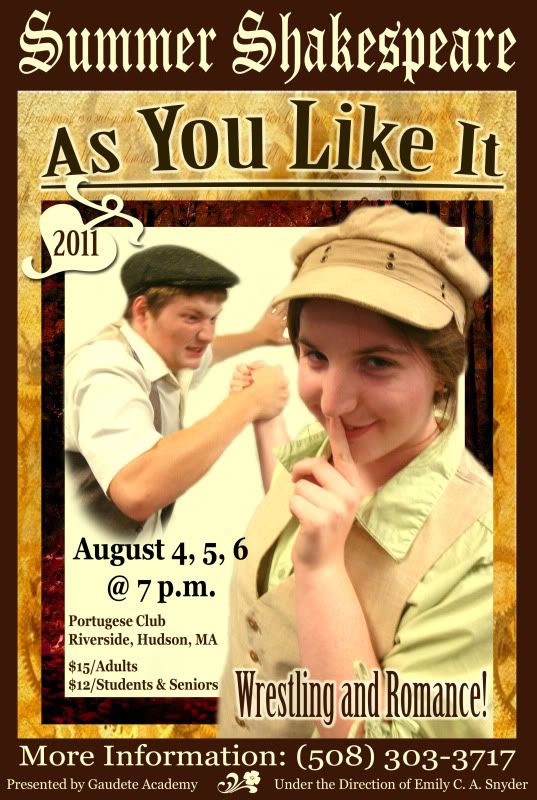
















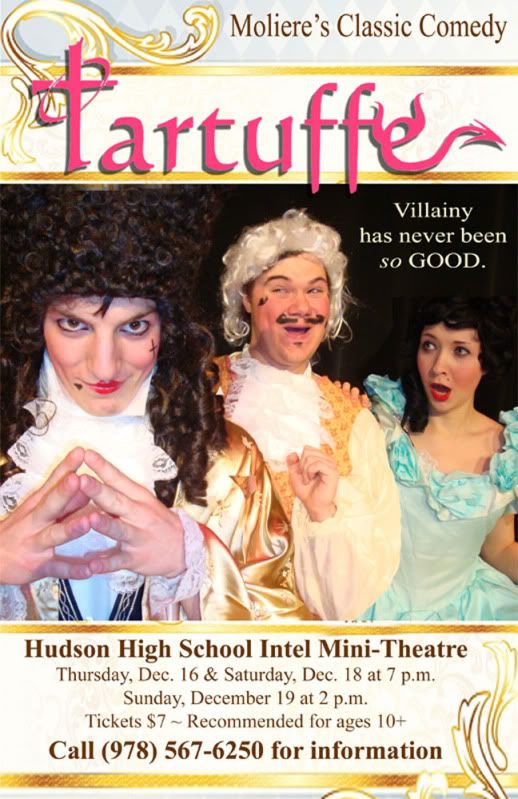
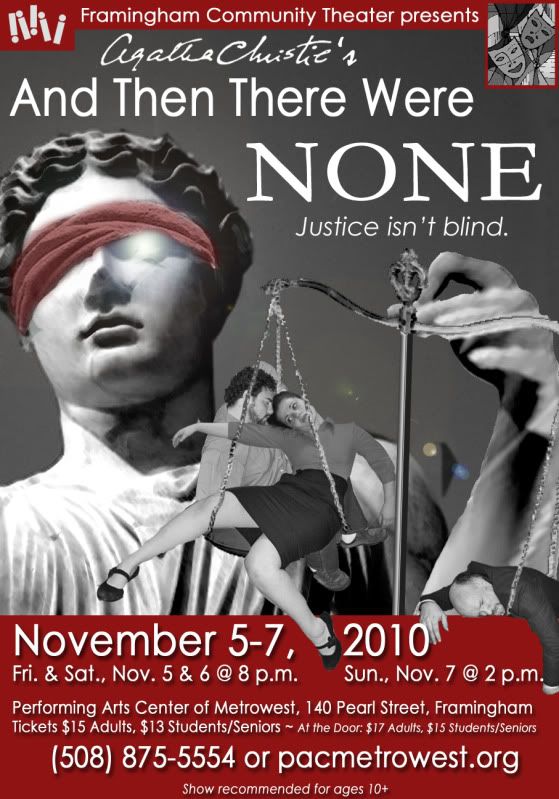








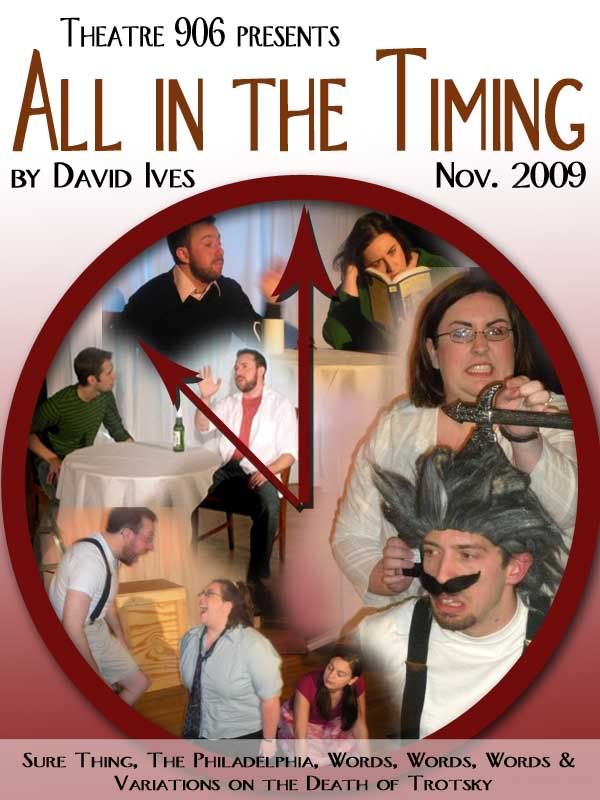








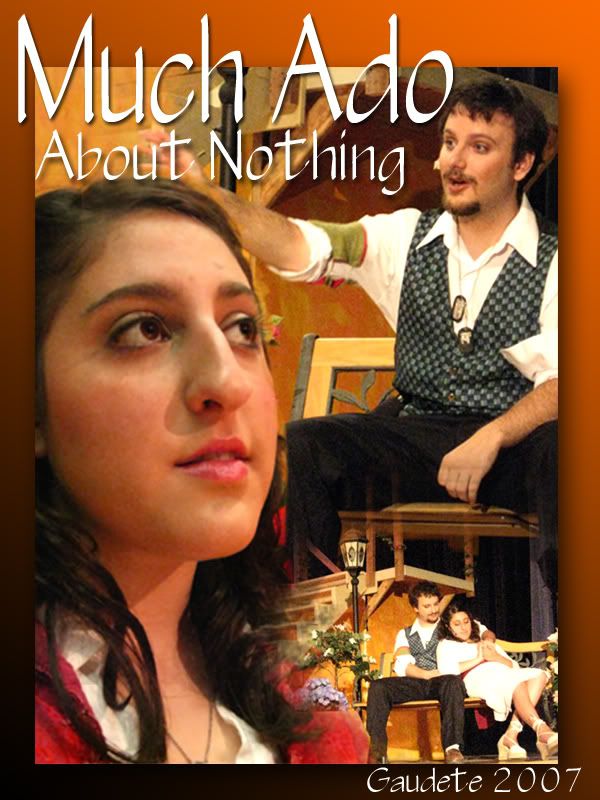
























 I returned home to discover that my computer had come...and gone. With the FedEx man. Who didn't find us at home, so left a note to that effect. Fortunately, I called FedEx, they told me how to get to the office in Framingham, and I sped off and waited patiently for the wonderful FedEx guy to find my package and deliver it to me. And now >sob< here I sit, with my restored computer!
I returned home to discover that my computer had come...and gone. With the FedEx man. Who didn't find us at home, so left a note to that effect. Fortunately, I called FedEx, they told me how to get to the office in Framingham, and I sped off and waited patiently for the wonderful FedEx guy to find my package and deliver it to me. And now >sob< here I sit, with my restored computer!

